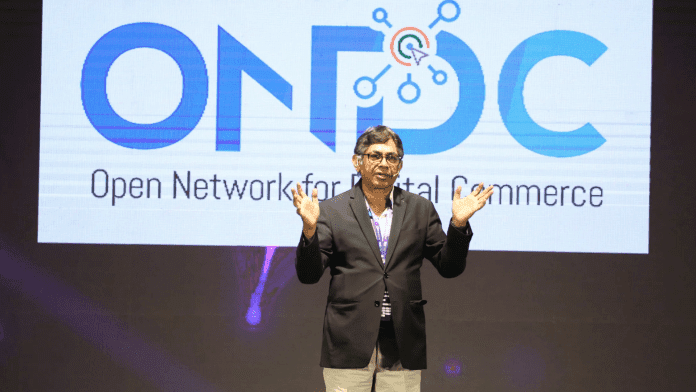Thampi Koshy, the Managing Director of the government-backed e-commerce platform Open Network for Digital Commerce (ONDC), anticipates that the daily transaction count is poised to reach 250,000 by the end of fiscal year 2024.
The platform’s transaction volume has surged from a modest 1,000 in January to 3.3 million in September, with the mobility sector accounting for 2.7 million of these transactions.
Koshy mentioned that although ONDC currently doesn’t impose any usage charges, there is an eventual expectation that it will introduce a nominal fee.
The network will ultimately be scaled up to “include everything (product and service) that can be catalogued”, he added.
Additionally, a B2B segment has been introduced, and within a month, it recorded 30,000 transactions, despite having only 2 sellers and 2 buyers on board.
As per Koshy’s insights, non-mobility categories are projected to reach a daily transaction volume of 100,000 by the end of the year, while the mobility sector is anticipated to boost transaction figures to approximately 150,000.
Up to September, transaction volumes reached a peak of 163,000 encompassing both the mobility and non-mobility sectors.
“As the portfolio of non-mobility sector increases, more FMCG majors come on-board, kiranas are brought online, the numbers in retail will increase. The plan is to hit 2.5 lakh transactions per day by year-end,” explained Koshy.
ONDC utilizes an open protocol to facilitate wider participation in various sectors, including mobility, grocery, food ordering and delivery, hotel booking, and travel, among others.
Conversations are underway regarding the introduction of a “modest fee” on both buyers and sellers as the network attains a critical volume.
Unlike other e-commerce platforms that levy commission fees (also known as platform fees) for listing and sales, ONDC does not charge any fees for transactions.
In the future, there may be a nominal fee introduced by ONDC for transactions on the platform, as hinted by him.
“The idea is not to monetise, but become self sustainable; to create a sustainable ecosystem while bringing small businesses on board. So, at some point, we will come up with a nominal fee from participatory platforms or buyers and sellers. At the same time, it has to be seen that the process does not hurt small sellers,” he said.
As transaction volumes increase and more products are listed, network participants anticipate improved profitability.
As per Koshy, employing deep discounting models and maintaining complete control over ecosystems from end to end is deemed an unsustainable business approach within an open network.
“Currently, the e-commerce model is about creating walled gardens (closed ecosystems of select sellers and buyers), rent seeking, and throwing good money to get people engaged to platforms (deep discounting ). So costs are high, and profitability continues to elude many,” he said, adding “so for ONDC ecosystem, profitability will automatically come in the long run.”





